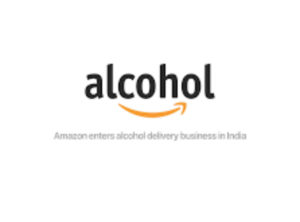Now home delivery of alcohol is possible in Delhi. But there are some unresolved issues…
On a cold evening in December 2019, some friends had gathered in the first-floor apartment of CR Park in south Delhi. There were some six people partying with a copious supply of booze, chicken rolls were lined on the table for those who’d want to eat. At about 11:30 pm, six more friends, mostly artists and writers, decided to join the party. They were welcomed by the host, a 35 years old journalist-writer, who was celebrating the end of seven years of marriage—she described it as ‘abusive’—with some college friends. But there was a problem. They were running out of the booze, a couple of bottles of beer, rum and whiskey were already over. It was still early, the party promised to last till the wee hours.
The six gatecrashers arrived nevertheless. All booze shops were shut. One of the gate crashers had a number. He called. A bottle of Red Label, two bottles of Old Monk, and 12 pints of Kingfisher beer were delivered 20 minutes later. The six gatecrashers shared the cost for late-night delivery of booze. “We had to pay Rs 400 extra,” one of them later informed.
This informal system of home delivery of booze, with a nominal charge, has been going on for years in Delhi. Every locality has its own set of people who are either employed in the local booze shop or work in the local market, some are even property dealers, who work hard during late nights to help replenish dwindling stocks of alcohol—during the hours when the shops are closed or even during the prohibitions days. Some of them have access to military canteen so that they reap some extra profit. And people are more than happy to pay them extra to fuel their late night parties.
Now it will be official in Delhi. The Kejriwal government has permitted for the first time in the Capital the home delivery of liquor. This was one of the main demands of the Confederation of Indian Alcoholic Beverage Companies (CIABC) who wanted a Mumbai and Bangalore, West Bengal like model for Delhi.
There are many websites and apps for home delivery of alcohol. For instance Living Liquidz delivers not only at home in Mumbai and Navi Mumbai, but also in Thane, Palghar and Bangalore. HipBar is one of the biggest in the Eastern India—operates in Kolkata, Howrah, Siliguri, Cuttack, Bhubaneshwar and now in Rourkela. Zomato is active in Bhubaneshwar, Kolkata, Ranchi, Siliguri, Jharkhand, Odisha, and West Bengal. BeerBox by aBEER is active in Mumbai, claims to be a shopping assistant when it comes to wine and beer needs, takes orders via Yellow.chat messenger, phone call, and WhatsApp messages.
CIABC director general Vinod Giri welcomed the move, “this has been our consistent demand for a long time. Last month also, we had requested the government to allow home-delivery of liquor in Delhi.” And allaying fears that this will contribute to alcoholism—a social menace—Giri said, “There are many states that have implemented this and there has been no adverse effect coming out of it.”

Excise duty on alcohol is a major source of revenue for the state exchequer—accounts for more than 14 % of revenue in Delhi. There’s a catch, only retail vendors with L-13—Indian liquor and L-13F—foreign liquor license holders will be allowed. L-13 license via an amendment will allow home delivery via websites or mobile app–only. The Delhi government hasn’t issued any license in the amended category, so far, permitting home delivery of liquor and the whole process may take time, as the details are not clear, and none of the app companies have made any announcements.
The lockdown created the need for it. There were long queues outside the liquor shops when the lockdown was announced, people trying to buy in bulk. Also, the black-marketing was rampant during this phase. A gang of cheats, with their kingpin, was arrested a couple of months ago in Delhi who’d charge an advance to home deliver alcohol during the lockdown.
There was a fair bit of pressure from the public via social networking sites, and also the revenue imperative was strong. Though, it’s known that chief minister Arvind Kejriwal’s views on consuming liquor is fairly Gandhian. There’s a catch or two. The Delhi Excise (Amendment) Rules 2021 notified allows delivery of alcohol to home, and not to any hostel, office, or institution and take away bottles from microbreweries as long as expiry date and shelf life is clearly mentioned.
Also, some in the industry, not wanting to be identified, consider this a good beginning but there are going to be problems as they fear the system is going to be inefficient. The reason being that only one category of retail license holder—L-13—are allowed.
The orders can’t be placed via phone or WhatsApp, have to be done via a mobile app or a web portal—and in all likelihood will be developed by the government.
Kshitij N, a final year engineering student, warns, “You know what happens when the government develops apps, usually with poor user interface, they crash when numbers rise. And there’s going to be a mad rush during the initial days, and as was the case with vaccination (Covid-19), confusion will carry the day,” he says with a fair bit of wit. But, the idea is good and a step in the right direction. “Delhi is the capital of India,” Kshitij asserts. He feels that like in Mumbai and Bangalore, “online delivery of liquor should be allowed through private platforms like Amazon, Bigbasket Swiggy or Zomato—this is their forte and they are good at it.” And mind it Delhi is a city of humongous proportions, with over 20 million population, and a sizable number of people love their drink.
All said and done, it will be soon possible to order chilled beer with pizzas in Delhi.





